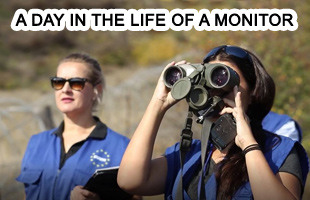“We used to bring water with small jars from Khurvaleti, which is two kilometres away from here; it was hardly enough for cooking or washing up,” says Elene Makishvili, as she pours water into a jar. “For a year the government sent fire trucks to deliver water here.”
Elene lives with her son, daughter-in-law and three grandchildren. It’s a sunny autumn day in her home village of Akhali Khurvaleti. She is washing up while one of her granddaughters finishes up some homework before returning to school for the afternoon session.
“Before the 2008 war we had water in the village but after the war the water source was left on the other side,” says Elene. “When the villagers renovated the system on the other side they damaged our pipe. Today our problem has been partly solved since a reservoir has been installed in our village with help from the Red Cross.”
In the local school playground the children are doing gymnastics. Villagers are going about their business, carrying water, chatting on a bench or herding their cattle. Were it not for a military checkpoint and a settlement for people displaced by the August 2008 conflict, Akhali Khurvaleti would look like any other village in Georgia’s Shida Kartli region.
Yet its 76 inhabitants, of whom 17 live in the village permanently, are still affected by the August 2008 war on a daily basis. Akhali Khurvaleti is located on the edge of the Administrative Boundary Line with South Ossetia and since January 2012 the village has been divided in two by razor wire.
“We haven’t got access to the most beautiful part of our garden and our orchard,” Elene says, looking into the distance. “It now lies beyond the wire.” So too does her husband’s grave, in a cemetery she hasn’t been able to visit for many years now.
.jpg)
Elene Makishvili
“There is no direct dialogue across the boundary line”
When Robert, Nancy, Samira and Nana knock at Elene’s door, she greets them with a smile and warmly invites them into her yard. They seem to be quite familiar with each other. The team is wearing the marine blue jackets of the European Union’s Monitoring Mission, more widely known as the EUMM.
When Robert and his team found out about Akhali Khurvaleti’s persistent water issue they notified the Red Cross, which repaired the water pipe and installed a reservoir just outside Elene’s house. The EUMM is not a humanitarian organisation and hence, when its monitors find out about villagers’ material problems, they notify partner organisations.
“Water is one of the issues we hear time and again,” says Robert Mangham, the leader of the human security team of EUMM’s Field Office in Gori.
“The solution to the water problem lies in dialogue between the populations living on both sides of the boundary,” he continues. “They need to talk to each other and cooperate to find local solutions. Unfortunately because of the conflict there is no direct dialogue across the boundary line.”
In the immediate aftermath of the August 2008 conflict, the European Union set up the EUMM, which consists of 200 international monitors who come from various backgrounds – civilian, military and police. Robert is a British citizen with long-standing experience in humanitarian aid, Samira is a Swedish journalist who has freshly arrived from a similar Mission in Hebron and Nancy is a police officer from the Netherlands.
Every day the EUMM patrols the Administrative Boundary Lines with South Ossetia and also Abkhazia, monitoring and reporting on the impact of the conflict on local communities. Access to water is symptomatic of the many issues caused by the divide, such as access to land, but also to education, social services and religious sites, to name but a few.
.jpg)
Bridging the divide
“The monthly meetings that are facilitated by the EUMM, in conjunction with the OSCE, are very important to actually find solutions to these types of problems,” explains Robert.
Robert is referring to the Incident Prevention and Response Mechanism or IPRM meetings. Every month since 2009, representatives from both sides of the boundary gather in a tent set up for the occasion by the EUMM. Participants cross the divide before the meetings begin and assemble behind concrete roadblocks and a manned checkpoint.
“We try to negotiate with our counterparts from the Russian Federation and Tskhinvali to maintain and run projects which need a common approach and common assistance,” says Kakhaber Kemoklidze, the Georgian IPRM participant.
The negotiators and their teams shake hands and exchange pleasantries in an atmosphere that stands in sharp contrast to their immediate surroundings, where everything serves as a reminder of the conflict and the subsequent divide.
Besides IPRM meetings the EUMM provides a 24/7 Hotline to enable contacts between the parties. Whenever an incident occurs, the Hotline is a crucial tool to prevent and appease tensions through the exchange of information.
“It is difficult to overstate the importance of having this human dialogue,” says Khokh Gagloity, the South Ossetian participant. “When we are trying to discuss issues openly, authoritatively and objectively, then we can agree that there is no black and white and that’s a good thing.”
.jpg)
Watch a video on Elenes story here: /en/new_media_gallery
Elene lives with her son, daughter-in-law and three grandchildren. It’s a sunny autumn day in her home village of Akhali Khurvaleti. She is washing up while one of her granddaughters finishes up some homework before returning to school for the afternoon session.
“Before the 2008 war we had water in the village but after the war the water source was left on the other side,” says Elene. “When the villagers renovated the system on the other side they damaged our pipe. Today our problem has been partly solved since a reservoir has been installed in our village with help from the Red Cross.”
In the local school playground the children are doing gymnastics. Villagers are going about their business, carrying water, chatting on a bench or herding their cattle. Were it not for a military checkpoint and a settlement for people displaced by the August 2008 conflict, Akhali Khurvaleti would look like any other village in Georgia’s Shida Kartli region.
Yet its 76 inhabitants, of whom 17 live in the village permanently, are still affected by the August 2008 war on a daily basis. Akhali Khurvaleti is located on the edge of the Administrative Boundary Line with South Ossetia and since January 2012 the village has been divided in two by razor wire.
“We haven’t got access to the most beautiful part of our garden and our orchard,” Elene says, looking into the distance. “It now lies beyond the wire.” So too does her husband’s grave, in a cemetery she hasn’t been able to visit for many years now.
.jpg)
Elene Makishvili
“There is no direct dialogue across the boundary line”
When Robert, Nancy, Samira and Nana knock at Elene’s door, she greets them with a smile and warmly invites them into her yard. They seem to be quite familiar with each other. The team is wearing the marine blue jackets of the European Union’s Monitoring Mission, more widely known as the EUMM.
When Robert and his team found out about Akhali Khurvaleti’s persistent water issue they notified the Red Cross, which repaired the water pipe and installed a reservoir just outside Elene’s house. The EUMM is not a humanitarian organisation and hence, when its monitors find out about villagers’ material problems, they notify partner organisations.
“Water is one of the issues we hear time and again,” says Robert Mangham, the leader of the human security team of EUMM’s Field Office in Gori.
“The solution to the water problem lies in dialogue between the populations living on both sides of the boundary,” he continues. “They need to talk to each other and cooperate to find local solutions. Unfortunately because of the conflict there is no direct dialogue across the boundary line.”
In the immediate aftermath of the August 2008 conflict, the European Union set up the EUMM, which consists of 200 international monitors who come from various backgrounds – civilian, military and police. Robert is a British citizen with long-standing experience in humanitarian aid, Samira is a Swedish journalist who has freshly arrived from a similar Mission in Hebron and Nancy is a police officer from the Netherlands.
Every day the EUMM patrols the Administrative Boundary Lines with South Ossetia and also Abkhazia, monitoring and reporting on the impact of the conflict on local communities. Access to water is symptomatic of the many issues caused by the divide, such as access to land, but also to education, social services and religious sites, to name but a few.
.jpg)
EUMM team visiting Elene
“The monthly meetings that are facilitated by the EUMM, in conjunction with the OSCE, are very important to actually find solutions to these types of problems,” explains Robert.
Robert is referring to the Incident Prevention and Response Mechanism or IPRM meetings. Every month since 2009, representatives from both sides of the boundary gather in a tent set up for the occasion by the EUMM. Participants cross the divide before the meetings begin and assemble behind concrete roadblocks and a manned checkpoint.
“We try to negotiate with our counterparts from the Russian Federation and Tskhinvali to maintain and run projects which need a common approach and common assistance,” says Kakhaber Kemoklidze, the Georgian IPRM participant.
The negotiators and their teams shake hands and exchange pleasantries in an atmosphere that stands in sharp contrast to their immediate surroundings, where everything serves as a reminder of the conflict and the subsequent divide.
Besides IPRM meetings the EUMM provides a 24/7 Hotline to enable contacts between the parties. Whenever an incident occurs, the Hotline is a crucial tool to prevent and appease tensions through the exchange of information.
“It is difficult to overstate the importance of having this human dialogue,” says Khokh Gagloity, the South Ossetian participant. “When we are trying to discuss issues openly, authoritatively and objectively, then we can agree that there is no black and white and that’s a good thing.”
.jpg)
IPRM meeting in Ergneti
Watch a video on Elenes story here: /en/new_media_gallery


